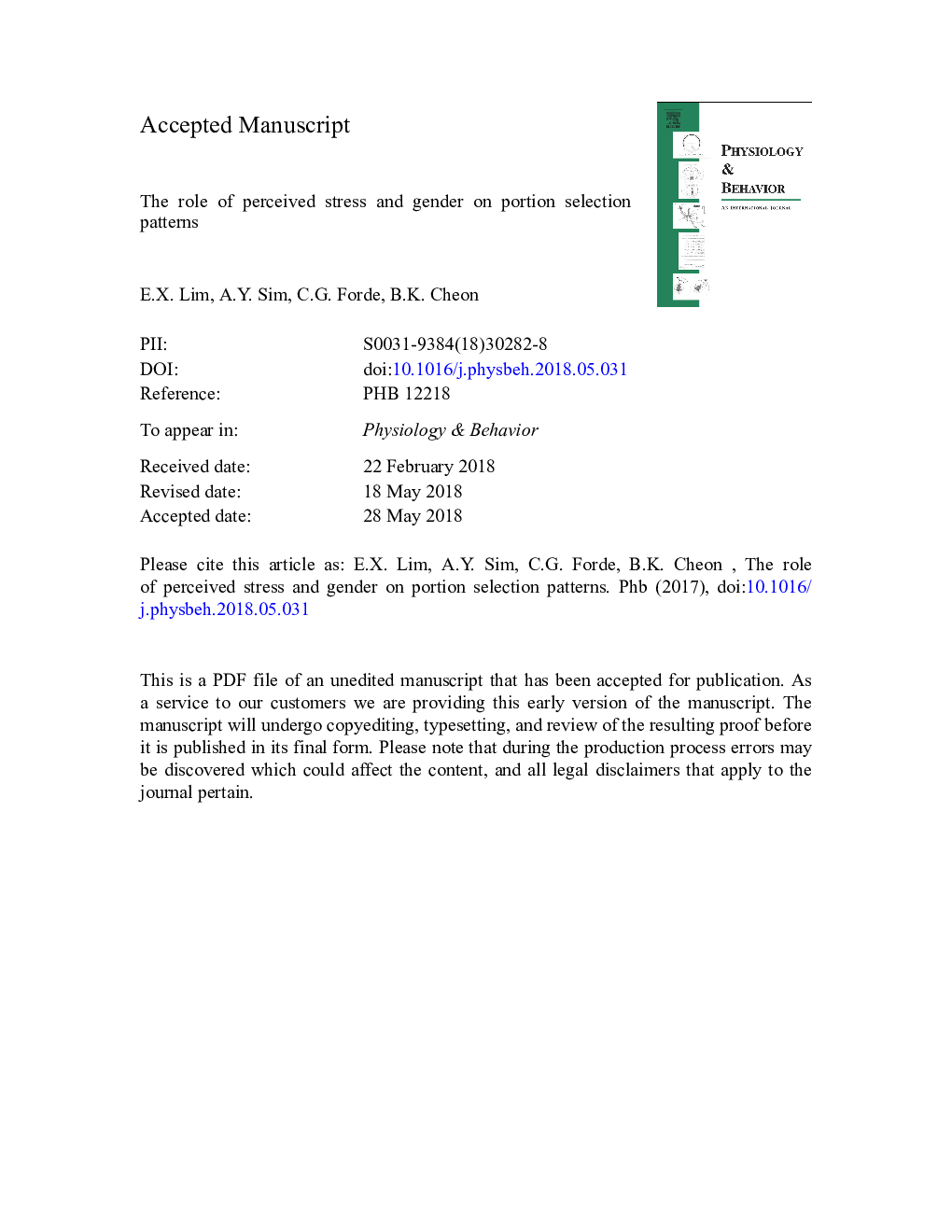| Article ID | Journal | Published Year | Pages | File Type |
|---|---|---|---|---|
| 8650266 | Physiology & Behavior | 2018 | 33 Pages |
Abstract
Stress is linked to increased preferences and consumption of palatable energy dense foods, particularly among females. Despite the role of stress on potentially obesogenic eating habits, its effect on pre-meal planning, such as the selection of portion sizes, remain unknown. Here, we investigated the relationship between perceived stress, gender, and intended portion sizes for diverse foods. Across two studies, increased perceived stress predicted larger (higher energy) intended portion sizes across a variety of food items among females, but not males. Additionally, for females, increased perceived stress was associated with lowered expectations of the satiety of foods presented, suggesting a potential mechanism by which stress may influence decisions about portion size. These findings reveal that the potentially obesogenic effects of stress on food judgments and behaviours (particularly among females) are not only expressed within meals, but also during more deliberate stages of planning that precedes meals.
Keywords
Related Topics
Life Sciences
Biochemistry, Genetics and Molecular Biology
Physiology
Authors
E.X. Lim, A.Y. Sim, C.G. Forde, B.K. Cheon,
